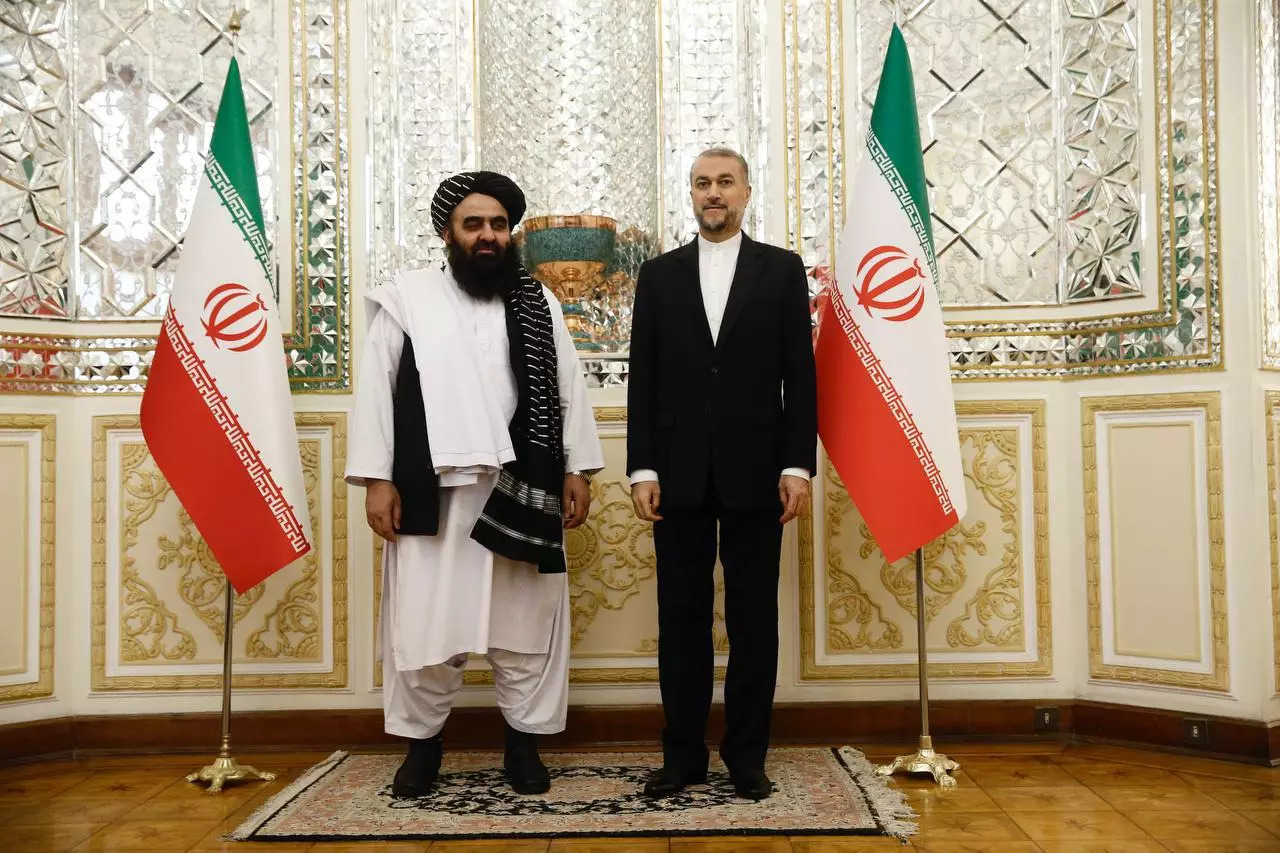Iran’s Foreign Minister, Hossein Amir-Abdollahian, underscored the need to resolve existing issues between Iran and Afghanistan during a meeting held on December 24 with the acting Taliban Foreign Minister, Amir Khan Muttaqi, and the accompanying delegation.
The discussions, as reported by Iran’s Mehr news agency, focused on various matters, including border disputes, water concerns, migration challenges, and other pertinent issues.
Amir-Abdollahian expressed hope that practical cooperation from Taliban officials would contribute to the resolution of these bilateral problems. In response, Muttaqi emphasized the significance of enhancing relations between the two countries. He stressed the necessity of continued collaboration across various domains, such as water management, border issues, trade relations, and cooperation in judicial and consular affairs.
In an interview with the state-run IRNA, Muttaqi reiterated his government’s commitment to facilitating the return of Afghan migrants, stating that their “priority is to create favorable conditions for the swift repatriation of Afghan nationals.” This statement coincided with a backdrop of increasing deportations and reported incidents of harassment against Afghan residents in both Iran and Pakistan.
According to Iranian media, approximately 1.5 million Afghans entered Iran illegally following the Taliban’s takeover of Kabul in August 2021. Iran’s Interior Minister, Ahmad Vahid, previously mentioned in May that around 5 million Afghans were residing in Iran without legal status. On a global scale, the UN estimates that 5.7 million Afghans live as refugees, with an additional 3.5 million internally displaced. Meanwhile, the International Organization for Migration reported that 3.6 million Afghans fled their homeland in 2021 and 2022, with a majority seeking refuge in neighboring nations.
The significant influx of Afghan migrants has sparked economic and security concerns among the Iranian public. Consequently, there have been calls within Iran for the deportation of Afghans lacking valid documentation, leading Iranian authorities to announce plans for the deportation of millions of Afghan refugees labeled as “illegal” migrants.
Iran has implemented restrictions on Afghan migrants’ travel, residence, and employment in more than half of its 31 provinces. The severe enforcement of these measures, particularly in the western Kermanshah Province and 15 others across Iran, was emphasized on December 2 by the head of Iran’s foreign nationals affairs department.
Afghan migrants are currently limited to working in the construction and farming sectors, facing restrictions on state subsidies and even basic services like transportation and mobile phone access due to the lack of bank cards.







 President Ilham Aliyev shed light on the evolving contours of the peace process with Armenia during an international conference in Baku this week. ...
President Ilham Aliyev shed light on the evolving contours of the peace process with Armenia during an international conference in Baku this week. ...
 Azerbaijan and Armenia started the process of demarcation of their border on Tuesday, with the installation of the first border markers based on ge...
Azerbaijan and Armenia started the process of demarcation of their border on Tuesday, with the installation of the first border markers based on ge...
 Iranian President Ebrahim Raisi expressed Tehran’s readiness to participate in significant development projects in Sri Lanka during the inauguratio...
Iranian President Ebrahim Raisi expressed Tehran’s readiness to participate in significant development projects in Sri Lanka during the inauguratio...
 Turkmen President Serdar Berdimuhamedow and British Secretary of State for Foreign Affairs, Commonwealth Affairs, and Development David Cameron dis...
Turkmen President Serdar Berdimuhamedow and British Secretary of State for Foreign Affairs, Commonwealth Affairs, and Development David Cameron dis...



